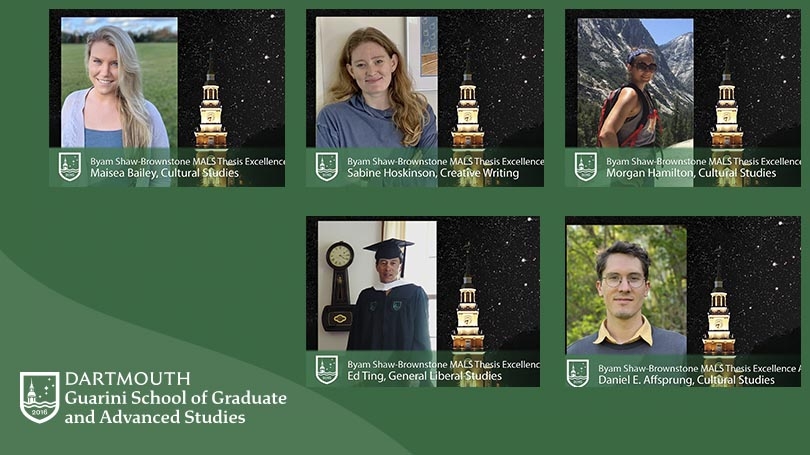
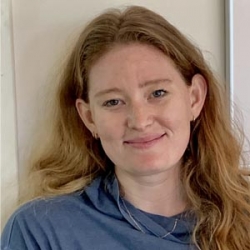
The Byam Shaw-Brownstone Thesis Excellence Award is awarded annually in recognition of the outstanding thesis in each MALS concentration (General Liberal Studies, Creative Writing, Cultural Studies, and Globalization Studies).
Sabine Hoskinson is the 2020 MALS Thesis Award recipient for her work in the Creative Writing track.

Her thesis, titled Lotus Season, is a coming of age story that finds its characters grappling with questions of morality, destiny, sanity, and love as they discover how wrong we can be about who we are and what we want. Caught between the heady power of self-determination and the hand of fate, Michael, Megan, and Frances surge forward in their search for meaning, unprepared for the reckoning that is to come.
Tell us about what brought you to Dartmouth:
After receiving my B.A. in English, I worked in content creation and brand management in San Francisco. When the call to return both to academia and my writing came, the rich interdisciplinary offerings of MALS were perfect. My foremost goal was to dive deep into my creative writing craft, but my time at Dartmouth also let me study art, film, and critical theory. Atmosphere was equally vital and after city life, the peace of rural New Hampshire was heaven.
How has your work in MALS informed your future direction?
I will continue writing while also working in Interior Design.
Daniel Affsprung is the 2020 MALS Thesis Award recipient for his work in the Cultural Studies track.
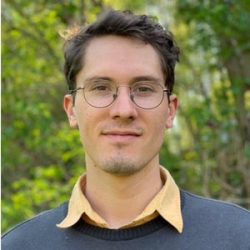
His thesis, Big Data Subjectivity, examines the data behaviorist change in subjectivation together with critical analysis of quantified self practices and Foucauldian understandings of cultural neoliberalism, and studies the relationships between these and the 4P healthcare paradigm.
Tell us about what brought you to Dartmouth:
I completed my BA at SUNY New Paltz, in English Literature. I chose Dartmouth for its setting and incredible faculty. In particular, I chose the MALS Program because it offered the opportunity to pursue an interdisciplinary thesis which draws on philosophy, critical cultural theory, and the history of science to address emerging questions in the field of digital studies.
How has your work in MALS informed your future direction?
My future plans include at least a year of work as I consider PhD possibilities. I am hoping to teach at the postsecondary level this Fall, to pass on some of what I learned here at Dartmouth.
Maisea Bailey is also the 2020 MALS Thesis Award recipient for her work in the Cultural Studies track.
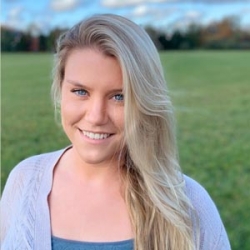
Her thesis, The Visual Activation of the American Left's Progressive Fantasy Post 2016, follows the visual activation of the American left's progressive fantasy that emerged from what scholar Lauren Berlant defines as 'situation tragedy' after the election of Donald Trump as President of the United States on November 8, 2016, While offering a reading of the role artists have played in such activation, a practice of 'traversing the fantasy' is identified while examining the affective artistic styles that categorize the artworks emerging from the progressive intimate public. Her thesis claims that visual affective images provide an opportunity for the continual emergence and activation of alternative forms of being and organizing in the world, while holding out the possibility of change for the present and future.
Tell us about what brought you to Dartmouth:
Prior to coming to Dartmouth, I held positions in art galleries and museums where I was doing curatorial work. I was drawn to Dartmouth's MALS Program's emphasis on interdisciplinary education that would allow me the opportunity to integrate my art historical background with other academic fields while creating an individualized focus for my specific interests. This led to my thesis project on activist art and social movements.
How has your work in MALS informed your future direction?
I plan to continue my research on the activist potential of art works, while pursuing work that supports social advocacy through cultural engagement with emphasis on closing opportunity gaps in society.
Morgan Hamilton is the 2020 MALS Thesis Award recipient for her work in the Globalization track.
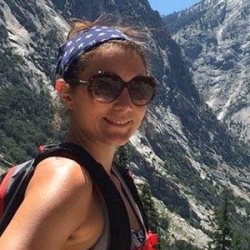
Her thesis, Dairylands, uses a qualitative ethnographic approach, supported by a historical and literary review, to explore the experiences of dairy farmers who have weathered years of historically low milk prices. Her conversations with farmers shed light on the ways in which land, legacy, and the social welfare of rural communities are intertwined. They also serve as a basis for my analysis of how the image of the family farmer has been used to reproduce inequalities in the global food system.
Tell us about what brought you to Dartmouth:
Having received my bachelor's degree in 2007, I resisted pursuing graduate work until I had a better understanding of what I wanted to study and explore professionally. After five years working full-time at the College, I felt prepared to take on part-time graduate school.
I was drawn to the MALS because of its flexible structure. The program sets basic parameters for completing coursework towards the degree, but otherwise allows students to navigate their graduate education on their own terms. In addition to the wonderful MALS faculty, students are also able to take advantage of Dartmouth's undergraduate course offerings and talented faculty instructors to round out their course requirements as they choose. I think the structure is ideal for someone like myself, since I was interested in self-directing my education.
How has your work in MALS informed your future direction?
My thesis work has strengthened my sense that there is much work necessary to improve the social and economic conditions of rural communities. I hope to find ways to get involved in this work in the future.
Ed Ting is the 2020 MALS Thesis Award recipient for his work in the General Liberal Studies track.
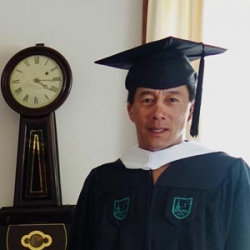
His thesis, Astrophotography - A Practical Guide, explores the world of astronomical imaging, and places it in context with history, advocacy, and practical advice.
Tell us about what brought you to Dartmouth:
I have a BS in Electrical Engineering from Illinois and worked in corporate sales for thirty years. I felt like there was something missing from my life and needed a change. MALS was just what I was looking for - a place where I could interact with other passionate individuals from diverse backgrounds.
How has your work in MALS informed your future direction?
Right now, nothing. But talk to me in six months, I'm sure I'll have found more trouble to get myself into!
Note: Ed has also contributed to the visual image of the Guarini Logo -- and has made a short video about his process which you can view at this link.